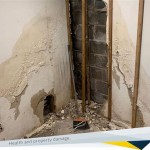How to Construct a Basement Foundation: An Essential Guide
A basement foundation is an integral part of any building, providing additional space, storage, and potential living areas. However, constructing a basement foundation requires careful planning, preparation, and skilled craftsmanship. Here's a comprehensive guide to help you understand the essential aspects of constructing a basement foundation:
1. Planning and Design
The first step is to plan the design of your basement foundation. Determine the size, shape, and depth of the basement. Consider the type of soil in your area and consult with a structural engineer to ensure the design meets building codes and load-bearing requirements.
2. Excavation
Once the design is finalized, excavation begins. Excavate the soil to the desired depth and shape, ensuring a level base and appropriate drainage slopes. Protect the excavated area from erosion and water damage by installing temporary shoring or dewatering systems.
3. Footings and Forms
Footings are the reinforced concrete base that supports the foundation. They are typically poured into trenches beneath the excavation. Formwork is then installed to create the shape and size of the basement walls.
4. Concrete Pouring
The foundation walls are poured using a concrete mix that meets the specified strength and durability requirements. Ensure proper compaction and curing to achieve the desired structural integrity.
5. Waterproofing and Drainage
To prevent water seepage and moisture damage, waterproofing measures are essential. Apply a sealant or membrane to the exterior walls and install a drainage system to divert water away from the foundation. Proper drainage slopes and a sump pump may be necessary to manage excess water.
6. Backfilling and Finishing
Once the concrete is cured, the excavated area is backfilled with soil. Compact the soil in layers to provide support and prevent settling. The basement floor can be finished with concrete, tile, or other flooring materials.
7. Inspection and Maintenance
After completion, a thorough inspection is crucial to ensure the foundation meets code requirements and is free from defects. Regular maintenance is essential to prevent deterioration, including periodic waterproofing inspections and drainage system cleaning.
Additional Considerations:
- Soil Conditions: The type of soil and its water content can significantly impact the foundation design and excavation process.
- Site Access: Ensure adequate access to the site for excavation equipment and materials delivery.
- Ventilation and Lighting: Proper ventilation and lighting are important for safety during construction and future use of the basement.
- Insulation: Consider insulating the basement walls and floor to improve energy efficiency and reduce moisture condensation.

Everything You Need To Know About Basement Construction

Concrete Block Basement Construction Specifications

Understanding The Different Types Of Basement Foundations

Doe Building Foundations Section 2 1 Recommendations

How To Build A Home Step 31 Set Basement Beams Armchair Builder Blog Renovate Repair Your Own Save Money As An Owner

Checklist For Residential Basement Construction Concrete Network

Basement Construction And Structural Design Designing Your Perfect House

Doe Building Foundations Section 2

Discover Our Optional Basements Designed And Constructed For Truly Comfortable Living

Hph163 How To Create An Effective Basement With Andrew Mcinulty House Planning Help







